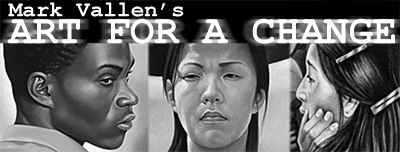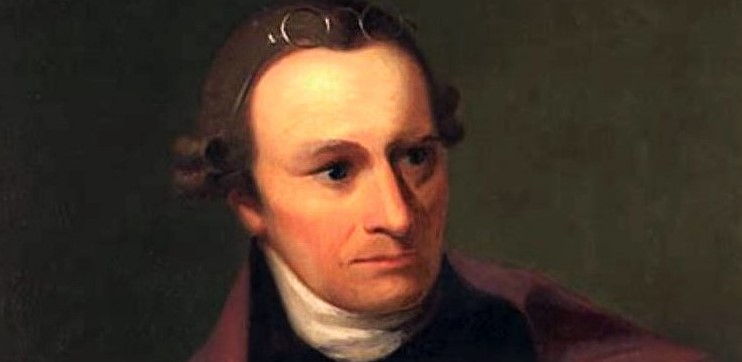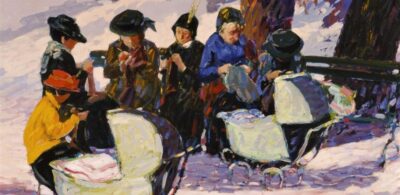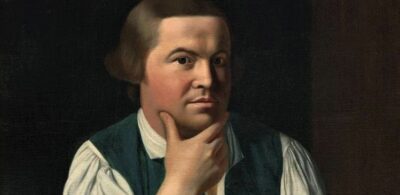Patrick Henry: March 23, 1775
In 1774 Patrick Henry was a delegate to the Continental Congress held in Philadelphia. Along with his associate Samuel Adams (founder of the Sons of Liberty in Boston), they agitated for a war of Independence against Great Britain.
As the Continental Congress proceeded, Patrick Henry rallied the colonists to unite against British rule, he proclaimed: “The distinctions between Virginians, Pennsylvanians, New Yorkers and New Englanders, are no more. I am not a Virginian, but an American.”
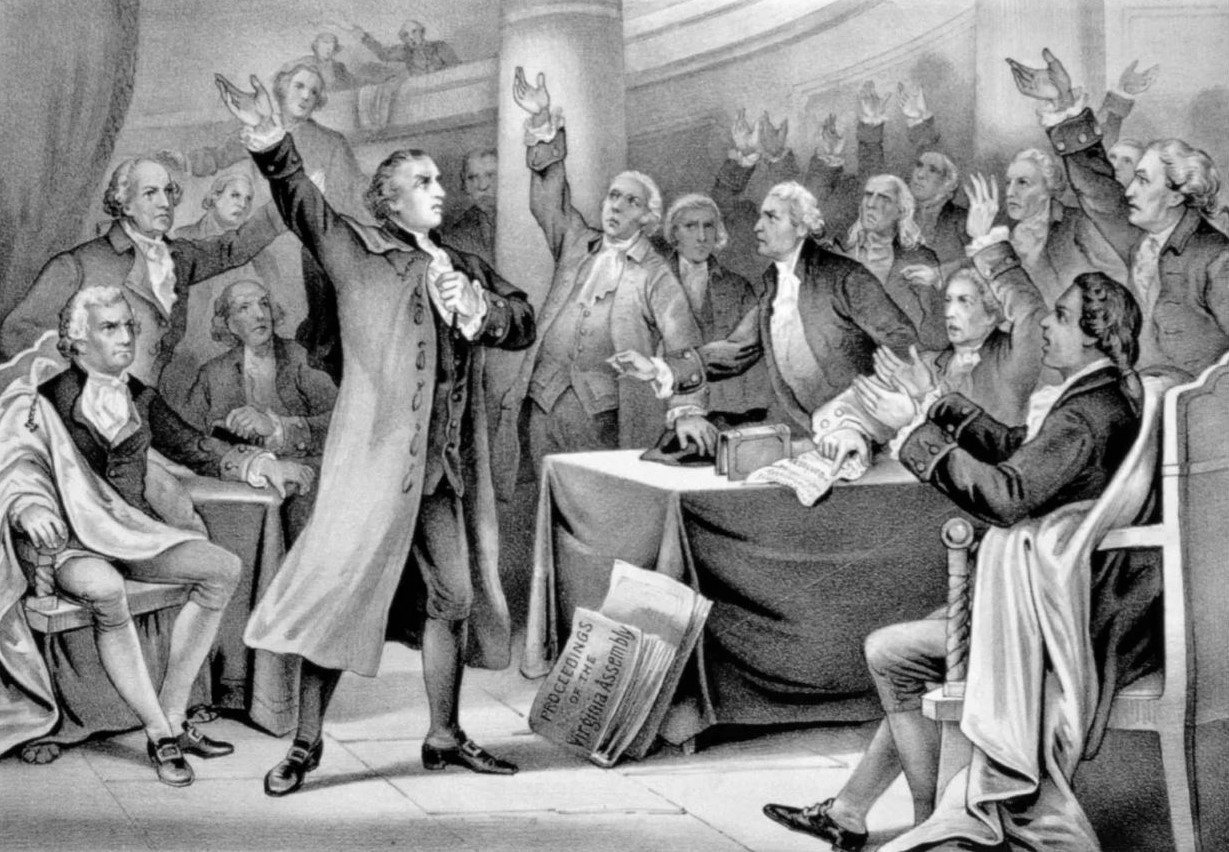
On this day, March 23, 1775, Patrick Henry (1736-1799) delivered his famous Give me liberty or give me death! speech during the Second Virginia Convention held in Richmond at St. John’s Church. His oratory advocated that a militia was needed to confront the British Empire. Henry’s powerful speech ended with the following words:
“The war is actually begun! The next gale that sweeps from the north will bring to our ears the clash of resounding arms! Our brethren are already in the field! Why stand we here idle? What is it that gentlemen wish? What would they have?
Is life so dear, or peace so sweet, as to be purchased at the price of chains and slavery? Forbid it, Almighty God! I know not what course others may take; but as for me, give me liberty or give me death!“
In 1815 the famous American artist Thomas Sully (1783-1872) painted a portrait of Patrick Henry for Mr. William Wirt, Henry’s biographer and the 9th Attorney General of the United States. Sully also painted portraits of famous American figures like President Thomas Jefferson, President John Quincy Adams, and President Andrew Jackson. In 1819 Sully painted a splendid, large-scale oil on canvas titled, The Passage of the Delaware.
The Passage of the Delaware depicts General George Washington and his Continental Army crossing the Delaware River on the night of Dec. 25-26, 1776—the American Revolutionary Army mounted a victorious surprise attack that defeated some 1,500 Hessian auxiliary soldiers of the British Empire at the Battle of Trenton. Thirty-two years after Sully painted Passage, Emanuel Leutze would paint his famous Washington Crossing the Delaware.
The Metropolitan Museum of Art exhibited a collection of thirty paintings and drawings by Sully they titled Thomas Sully in the Metropolitan; the exhibit ran from Sept. 19, 2000 to Jan. 14, 2001.
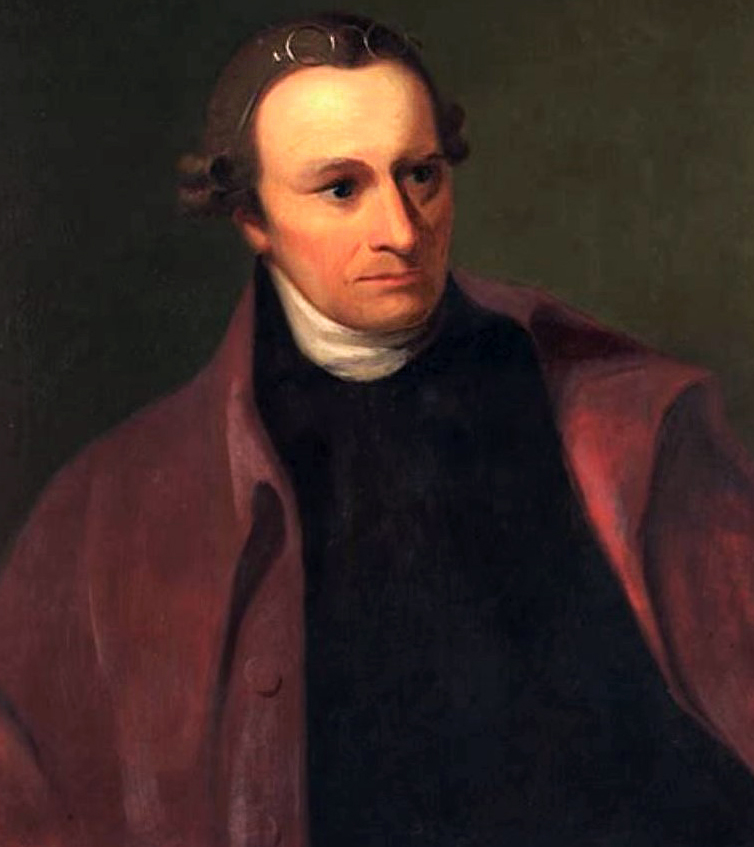
When Patrick Henry died on June 6, 1799, it was discovered that he left a note to all future Americans, it was placed in an envelope sealed with wax. His message was written on a single sheet of paper; on the front he penned his Virginia Resolves, the 1765 resolutions he wrote against the “Stamp Act” the British Empire used to tax the American colonies. On the back of the parchment he tendered that if America’s independence should “prove a Blessing or a curse,” it:
“will depend on the use our people make of the blessings which a gracious God hath bestowed on us. If they are wise, they will be great and happy. If they are of a contrary character, they will be miserable. Righteousness alone can exalt them as a Nation.
Reader! whoever thou art, remember this, and in thy Sphere, practice Virtue thyself, and encourage it in others.”

